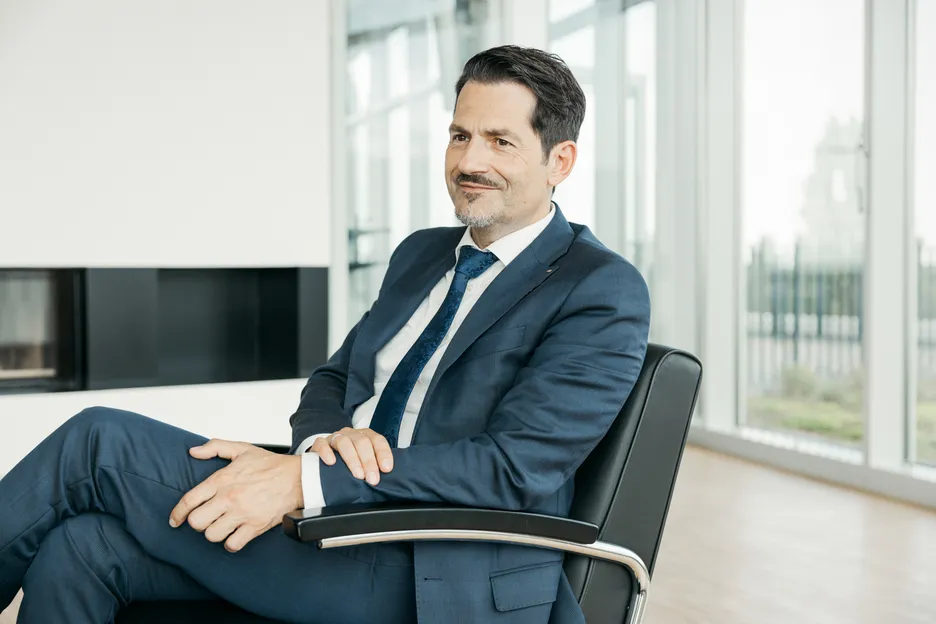TUM President's Message
For more than a year, our lives have been in the firm grip of the Covid-19 pandemic. Nonetheless, the Technical University of Munich (TUM) has taken great leaps through turning current challeng- es into new opportunities of purposeful development.

Image: Thomas Dashuber
Taking in stride the necessary restrictions on in-classroom instruction, our university community of professors, staff, and students succeeded in switching to digital teaching formats, adapting laboratory courses and online examinations in a timely and quality-oriented fashion. This enabled us to continue providing our international student body with the full range of high-quality courses offered by our university.
Simultaneously, we have been continuing to implement our TUM AGENDA 2030 by activating our most valuable asset – our people – a diverse pool of talents with a mindset for change. We have been embarking on a journey to increase their capabilities via supporting framework conditions, lifelong learning offerings, transdisciplinary and transnational networking, as well as entrepreneurial action. In addition, we have made sustainability a strategic priority of TUM in all its mission agendas. Beyond expanding our wide range of research and teaching activities in climate research, clean energy, smart mobility or prevention and health, we introduced the TUM Sustainability Office to implement an institutional strategy to lower CO2 footprint and energy consumption and increase resource awareness across the entire university. In just one year, we have achieved great progress, despite of the pandemic.
We have started to remodel our organization into a matrix structure comprising seven TUM Schools and Integrative Research Centers (IRCs) cutting across these schools, in order to better shape new fields of scientific progress. Among our seven schools, the new TUM School of Social Sciences and Technology, set to launch on October 1 of this year, will play a key role in our agenda to implement our “human-centered engineering” approach towards responsible research and innovation. We have initiated a major recruitment program to re-enforce the faculty of this school by up to ten additional professors. At this point, I would like to express my sincere thanks to our TUM-IAS Director Prof. Michael Molls, who chaired the structural committee for faculty recruitment with a truly wholehearted passion and commitment.
Founded as the most recent IRC, the Munich Data Science Institute (MDSI) is the central interface and innovation platform for complex challenges and future-oriented questions in data science, machine learning, and artificial intelligence. Associated with the MDSI is the TUM Georg Nemetschek Institute (GNI) on Artificial Intelligence for the Built World. The GNI uses modern computer technologies, AI, and machine learning to develop fundamentally new solutions for the ecologically and economically sustainable construction environment. It is going to collaborate with the TUM-IAS and build new synergies through thematically oriented Hans Fischer Fellowships. While the GNI is going to be responsible for defining specific research fields for these Fellowships and providing their funding, the TUM-IAS will cover the application and evaluation process, connect the international Fellows to its large and multidisciplinary scientific community, and provide comprehensive professional support during the Fellowship.
We also initiated the ONE MUNICH strategy to synergize leading scientific strengths between institutions in the Munich metropolitan area. In conjunction with our partners, the LMU Munich, the Bavarian Academy of Sciences and Humanities, the Fraunhofer Society, and the Max Planck Society, TUM will continue to promote the development of quantum science and technology in the Munich Quantum Valley Network over the next ten years. Building on the strengths of our Cluster of Excellence Munich Center for Quantum Science and Technology (MCQST), cooperation projects are going to range from quantum simulators and computers to help search for new materials, to methods of quantum metrology for high-precision measurements of electric or magnetic fields, to methods for tap-proof quantum cryptography.
To accelerate the translation of new discoveries and technologies into transformative businesses, TUM and its affiliated start-up incubator UnternehmerTUM have initiated the TUM Venture Labs.
These labs will support tech entrepreneurs with office and lab space matching the needs for specific tech areas like robotics/AI, quantum engineering or molecular assemblies, professional advice for start-up projects from idea creation to market growth and networking support concerning global enterprises and venture capital investors.
Founded in 2005, as a cornerstone of TUM’s institutional plan in the first round of the excellence strategy, the TUM Institute for Advanced Study has been developing to become a natural cauldron for nurturing new ideas with benefits for TUM as a whole. TUM-IAS has expanded its radius, has taken up new focus areas, and is destined to go on doing so. Issues of social and political science have become essential priorities because of new Fellows. Research fields such as data science, artificial intelligence, and robotics in the built environment are going to become internationally subjects of expertise with a strong draw through a state-of-the-art Fellowship program. Since this year, the TUM-IAS plays an important role in establishing the so-called TUM Innovation Networks, which consist of transdisciplinary “high risk/high gain” collaborative projects involving professorships across the various disciplines of TUM. As a result of this new format, TUM-IAS helps to identify and pursue future-oriented and high-potential research focus areas that can later lead to large-scale, far-reaching research consortia. The first three TUM Innovation Networks have been introduced in 2021 and are up and running.
If there is one lesson from the pandemic that we should carry on into the future it is this:
The unprecedented and breathtaking speed in developing an entirely new class of vaccines and thus delivering the first signs of hope in fighting and containing the virus, was made possible through scientific collaboration. In this sense, our leitmotif of cooperation, knowledge exchange and excellence in research have been inspiring TUM-IAS and its Fellows for years and will continue to do so in the future.